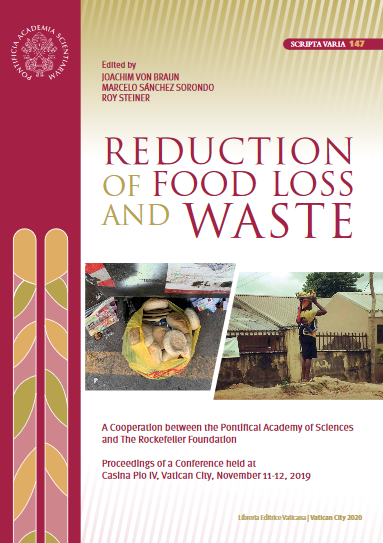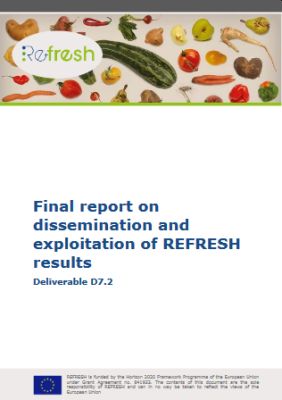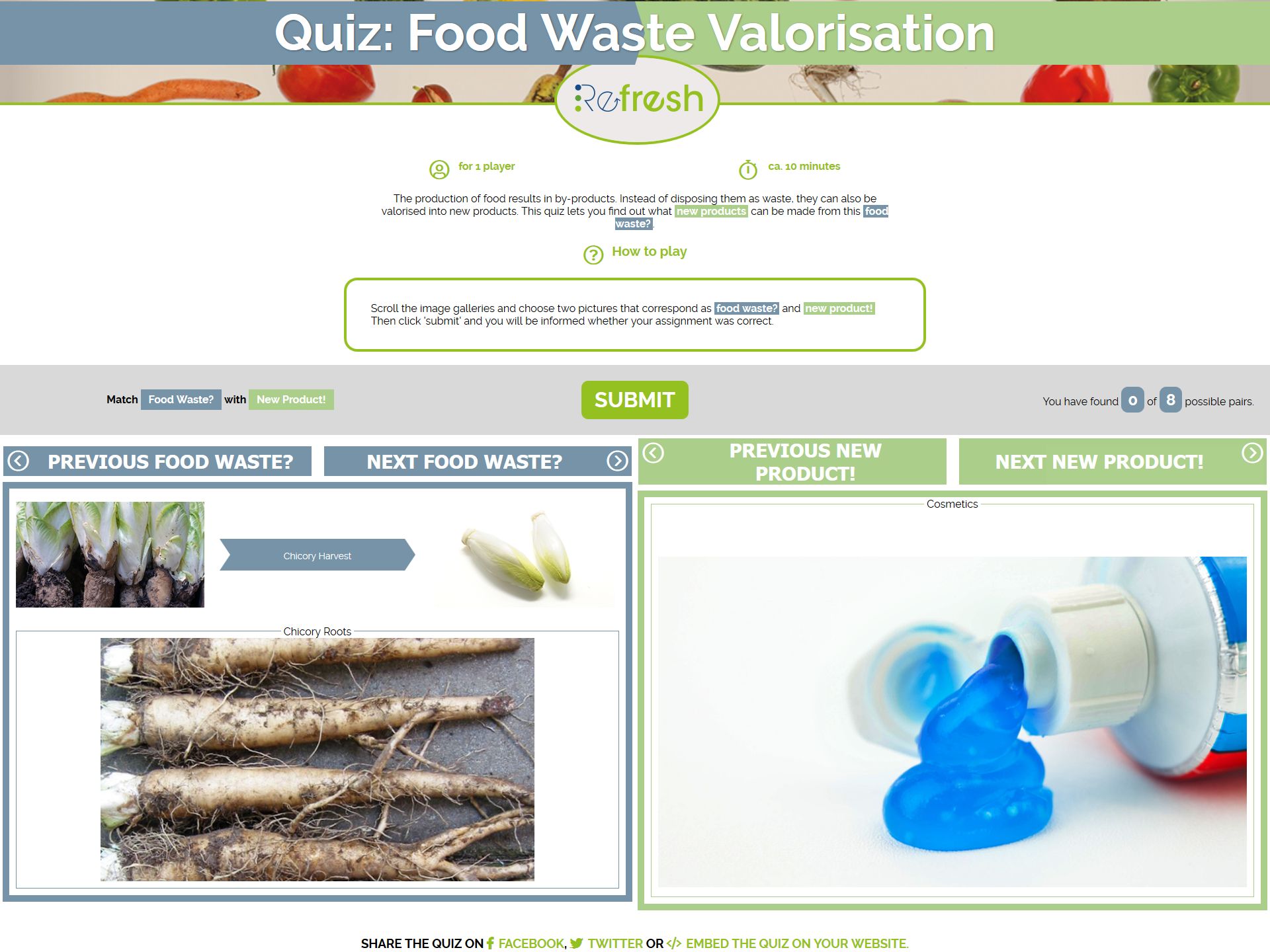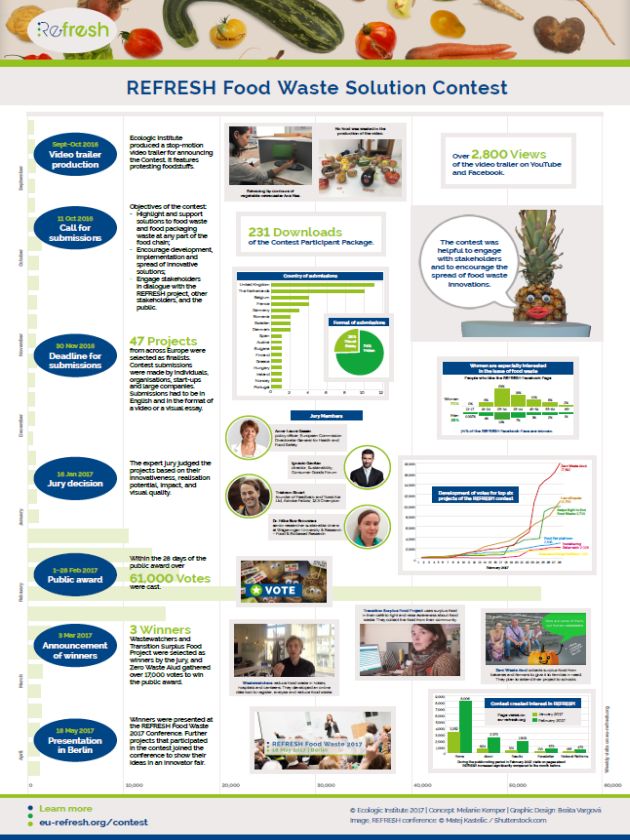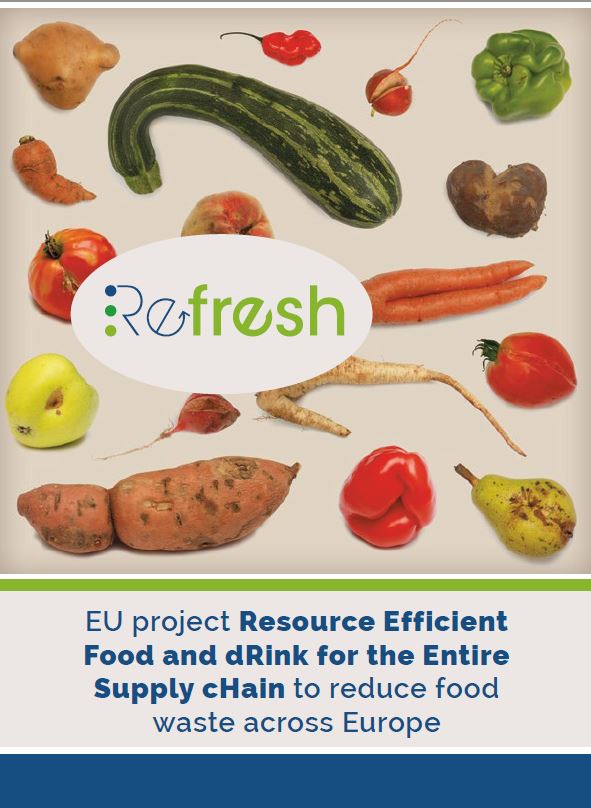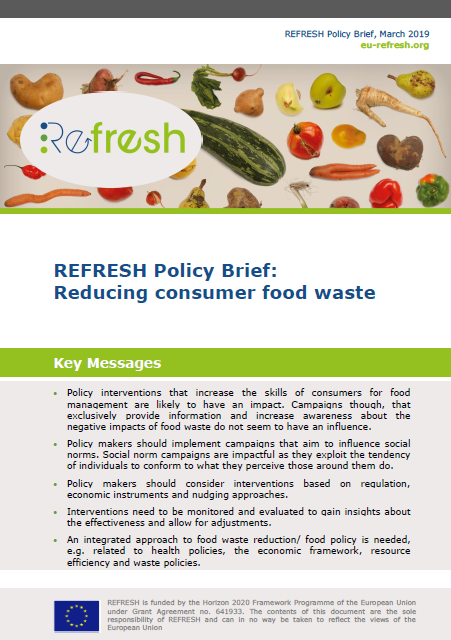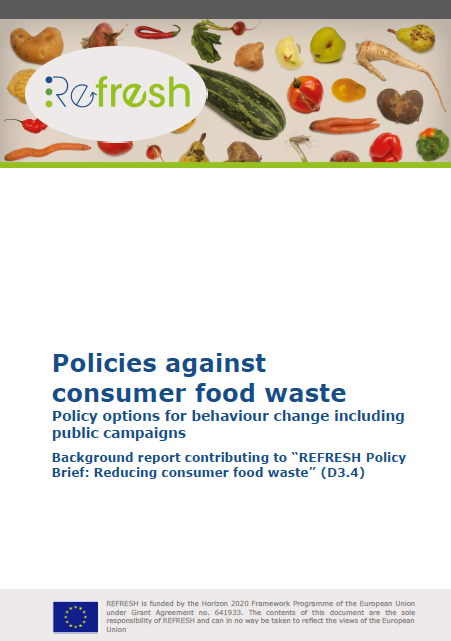Public campaigns and other policy instruments can significantly influence consumer behavior and contribute to a reduction of consumer food waste. The REFRESH Policy Workshop "Public campaigns and other policy options for behaviour change" discussed the findings of REFRESH work on consumer behaviour and policy recommendations with regard to reducing consumer food waste. Based on a detailed report and policy brief developed by the Ecologic Institute, the workshop provided ideas and inspirations for EU and national policy makers in designing appropriate interventions against consumer food waste. The workshop took place on 19 November 2018 in the German Ministry of Food and Agriculture in Berlin.
With an estimated contribution of 53%, the consumer is the primary contributor to food waste across the food chain in higher income countries. Considering that a large amount of this waste could be avoided, the urgent need to change consumer behaviour is evident. Reducing consumer food waste and policy interventions to support this effort is therefore a key area of the EU project REFRESH.
Based on desktop research and a REFRESH survey in four countries with 3354 households and their food waste behavior, the policy brief translates the findings on consumer behaviour into policy recommendations. At the workshop, options for interventions were discussed with policy makers from 13 EU Member States as well as other experts from research, EU policy, business and civil society.
Key policy recommendations are:
- Policy interventions that increase the skills of consumers for food management are likely to have an impact. Campaigns though, that exclusively provide information and increase awareness about the negative impacts of food waste do not seem to have an influence.
- Policy makers should implement campaigns that aim to influence social norms. Social norm campaigns are impactful as they exploit the tendency of individuals to conform to what they perceive those around them do.
- Policy makers should consider interventions based on regulation, economic instruments and nudging approaches.
- Interventions need to be monitored and evaluated to gain insights about the effectiveness and allow for adjustments.
- An integrated approach to food waste reduction/ food policy is needed, e.g. related to health policies, the economic framework, resource efficiency and waste policies
REFRESH (Resource Efficient dRink for the Entire Supply cHain) is a four year (2015-2019) Horizon 2020 EU research project taking action towards food waste reduction. Stephanie Wunder, Senior Fellow at Ecologic Institute authored the REFRESH policy brief for policy interventions to reduce consumer food waste and organized the policy workshop in Berlin.
The background report, policy brief, workshop minutes [pdf, 460 kB, English], agenda [pdf, 220 kB, English] and presentation are available for download.



